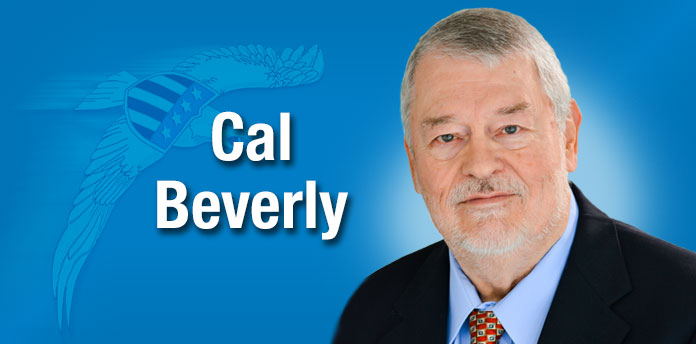OPINION — Here’s an Independence Day quiz intended for our local elected officials in Fayette County — for the city councils and the county commission and the Board of Education.
The quiz is about what local officials in their public meetings seem to have overlooked, or forgotten or just plain ignored about the last clause of the First Amendment to the U.S. Constitution.
Mayors, council members, commissioners and school board members, you all know about freedom of religion and its free exercise, about freedom of speech and of the press. Some of you worry about the right of the people peaceably to assemble.
Here’s the final right expressly listed in the First Amendment: “to petition the government for a redress of grievances.”
I have been covering and reporting on local government meetings since 1970. Yep, that’s a long time and a lot of elected officials. And I have observed a common reaction of elected officials (many if not most) during public meetings throughout that half century.
They gavel down and even threaten to remove members of the public who dare to speak their actual grievances about public officials.
I have seen it personally during the past year at the following meetings: Fayette County Board of Education (the most egregious), the Fayetteville City Council, the Peachtree City Council, the Fayette County Commission. It likely happened at the Tyrone Council as well, but I haven’t personally witnessed it.
Why likely? Because that’s just how public meetings of elected bodies operate.
You may argue that they all have set aside (more about that insult later) a limited amount of time for “the public” to have “comments.”
But the deal is this: They will not allow name-specific criticism of any person on the public payroll under their jurisdiction, elected, appointed or otherwise. They cut you off if you try. If you persist, they tell you to shut up or they will have a law enforcement officer remove you from the room.
At the recent Fayetteville City Council meeting, it got worse.
Fayetteville Mayor Ed Johnson (who is a good man and whom I like and respect) gaveled down a public speaker who began to criticize the Fayette County Development Authority. The FCDA was the applicant for a controversial annexation and rezoning for a mid-county data center next to long-established residential neighborhoods. The mayor ruled she was “out of order.”
The woman tried to continue about the FCDA. Mayor Johnson said if she continued, he would have a police officer remove her from the council meeting room. After asking, “What did I do?” she sat down.
She had a “grievance” about the government authority that was the official applicant for the rezoning. A meeting room was packed with folks who opposed the FCDA request.
Under threat of removal (and possible arrest) this member of the public — speaking in measured words, without visible anger and using no curse words or obscenities — was muzzled and her First Amendment right to voice her grievance during the designated time and place was trampled on.
What do these people in power think a “grievance” is? Here’s a dictionary definition: “a real or imagined wrong or other cause for complaint or protest, especially unfair treatment …. an official statement of a complaint over something believed to be wrong or unfair … a feeling of resentment over something believed to be wrong or unfair.”
In other words, it is by definition something negative. And according to the First Amendment of our U.S. Constitution, the mayor and council are obligated to hear that grievance. To speak that grievance is a constitutional right, in clear text and without boundaries.
The only person in that meeting who was “out of order” — out of constitutional order — was Mayor Ed Johnson.
But he is not the only one out of order.
The Fayette County Board of Education routinely silences criticism from members of the public. Let a parent bring up a specific grievance about a principal or a school disciplinary problem, and the gavel comes down with a bang.
The Peachtree City Council also dislikes criticism about city personnel or applicants for a zoning change during a public meeting.
Again, who do they think they are that they can routinely set strict limits on what a “grievance” can be? The First Amendment sets no boundaries on what is a proper, allowable grievance and what grievance is “out of order.”
I can hear elected officials argue, “If we let just any grievance be aired, no telling what will be said and how long we will have to be there.” Amen, brothers and sisters, preach that First Amendment! It is your elected privilege to listen to the people who put you in that position.
More about that “set aside” time that elected officials ordain for the public that elected them. Here’s the truth: Most officials don’t want to hear it. That’s why they move “public comments” to near the end of the public meetings, or set strict, timed limits on how long somebody can speak (they have no such limits on their own talk time, though many wish they would), and make speakers sign up before the meeting begins. What an insult!
Two evenings a month, they could make the time to serve the public by simply listening to the public — as long as the speakers want to come, let them speak. But, sadly, many elected officials — who campaigned for your vote at all hours and for many days — once elected would rather you didn’t disrupt their twice-a-month evening schedule.
To any attorneys in the audience, I suggest this is a mostly untouched area of First Amendment jurisprudence, ripe for precedents to be adjudicated. Unlike the Second Amendment, the text of the First Amendment is easily understood, without limiting qualifications: “To petition the government for a redress of grievances.” By definition, you could find a lot of aggrieved citizens.
People have a First Amendment right to tell the government what it’s doing wrong and to request that the wrong be righted. The biggest wrong is to gavel a member of the public down because the official dislikes the grievance being aired. And to shut them up at the 2-minute or 3-minute mark. In this democratic republic, we are under the impression that we elect public servants, not royalty who hold timed audiences.
With deep respect, I suggest to the mayors and chairpersons running these meetings, “Shut up and listen.”
[Cal Beverly has been the editor and publisher of The Citizen in Fayette County since 1993.]











Leave a Comment
You must be logged in to post a comment.